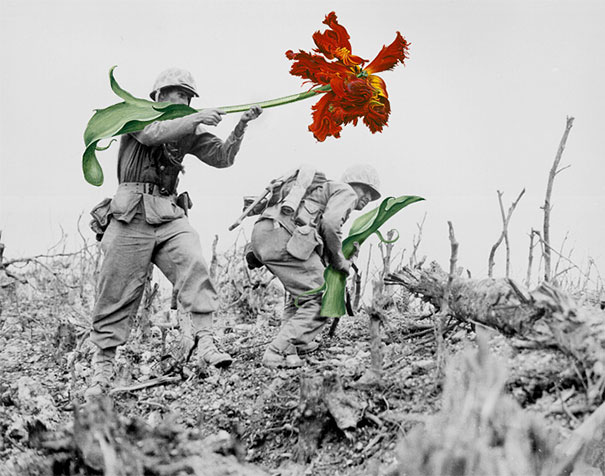I have sat in the company of a man who shot his wife. I have spoken in depth with a man who went to prison for shooting his landlords. I have seen one man, walk up to another man in the parking lot of an Old Country Buffet restaurant and shoot him in the head.
In all cases, these men could not believe they just took someone else’s life. “It was a moment of madness” they would say to me and contend innocence. Many men I spoke with also described themselves as good people who have never been violent before. As a reporter, it wasn’t my job to believe them, just to state the facts. But as a woman, I did believe them because of what I know now about emotional regulation and the miseducation of men in our society.
Violence is a moment of extreme, intolerable pain. It feels like madness. It feels uncontrollable, like an explosion detonating from our innermost parts, releasing fire from our outermost parts. Most of us, at one point or another will suffer from this. Life is hard. Life is unfair. People hurt us or they die. The pain that follows is some of the worst we can experience.
If a person does not know how to regulate emotions (and most do not), an act of violence follows. And typically, it goes one of two ways; projected onto others or projected onto the self. Projecting onto others manifests as physical fights, yelling and using weapons to inflict worse pain. Projecting onto the self typically results in suicidal ideation or completion.
This article is about gun violence, but not specifically about guns. Moreover, it is about our country’s men and their inability to emotionally regulate when negative emotions arise. Men, who have been conditioned generation after generation that they are to be strong, stoic, unemotional creatures, thus never learning an emotional vocabulary to help express pain. These same men are raising young impressionable boys to shoot guns and are shown where they can buy them. And because of that, we have had 249 mass shootings this year alone in the United States.
Banning guns will reduce instances of mass shootings tremendously, but that is only the first step. Emotional regulation classes are the next step, therapeutic education should be a right and should be found in schools.
I know violence and I am a woman, so it isn’t just men who suffer from it. I have been violent towards myself. I have screamed so badly at someone my throat developed sores allover it the next day. I have contemplated taking my own life more than once. I have stewed in pain so deep, so violating, that I wished the other person death and fantasized about being the one who delivered it.
Anger is a sticky emotion. It feels like tar and once you keep touching it, it spreads, blacking up your precious parts. And while people have hurt me greatly, what I have learned is this; people who hurt others typically have no idea they are hurting others, or they are so absorbed in their own pain they cannot see it. This creates a cycle because the victims become infected with pain afterwards, then repeat the violence.
And it’s here where I will finish the story of the men I first mentioned. The first man who killed his wife, discovered she was cheating on him. The second man was bullied and treated poorly by everyone. The third man discovered the man he killed was prostituting his young daughter to pedophiles. I am certain there are men who had no good reason to kill as well and some who are downright psychopathic, but in the majority of cases, at least in my experience, violence is a moment of desperation and severe injustice that has been passed on by someone else.
So how do we end this cycle? One year ago, I began a 6-month course of classes called Dialectical Behavioral Therapy, created by Marsha Linehan, Behavioral Psychologist and Professor at the University of Washington. DBT, as it is called, is a type of psychotherapy that combines behavioral science with Buddhist concepts like acceptance and mindfulness. The course consists of a once a week 2-hour class and therapy session with a DBT trained therapist. The 2-hour class is a group meeting with other individuals who struggle with emotional regulation. I am lucky I could afford the program; the group class is $60 per session and therapy is $120 per session.
All of the participants in my class had experienced horrific trauma and thus developed some type of mental illness or dysfunctional coping mechanism. By the end of this course, everyone I knew was transformed, including myself. The practical advice and acknowledgement of pain paired with mindfulness techniques, gave many of us the vocabulary to express ourselves in healthier ways, ways our parents never taught us.
There is deeper emotional development work to be done, but also broader societal problems to acknowledge that could end this hysteria forever. Unfortunately, our current political climate is exasperating susceptible minds who already have pain and mental illness, so this situation is growing worse.
While we lobby to ban guns, we can begin the deeper work, which is to learn to manage our negative emotions and pass that skill onto our children. I think we all deserve a chance to manage our pain better, don’t you?


